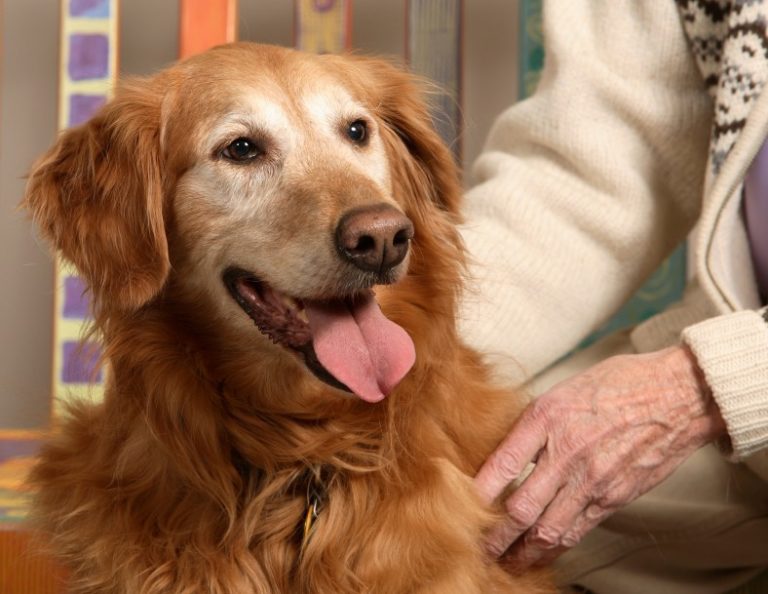Providing quality care for your senior dog is easier than you think.
By Audrey Pavia
Nothing illustrates the quick passage of time more than watching your dog grow old. One day he’s a tiny puppy and before you know it, he’s a senior dog.
You want to keep your canine companion around for as long as possible, and the best way to do that is to give him the special care senior dogs need. Giving him special consideration can help him stay with you as long as nature will allow.
Vet Care for Senior Dogs
Start by taking your senior dog to the vet for a wellness exam. Small- to medium-sized dogs over the age of 6 years should make yearly visits to the vet for a physical. Larger dogs should start at age 4.
The veterinarian will give your dog a thorough exam, looking into his mouth and eyes, checking his skin and coat, and palpating his abdomen, kidney and other organs. The vet will also perform a blood test that will show whether your dog’s body is functioning properly. This entire exam is important because it might provide early clues to any illness that could be developing. Early detection is the key when it comes to treating older dogs.
In between regular exams, pay close attention to your dog’s behavior. If he stops eating, develops diarrhea that doesn’t pass in a day, is breathing rapidly, acts lethargic or behaves in any way that is out of the ordinary, take him to the vet immediately. A host of ailments, ranging from parasites to kidney failure, can take a serious toll on an older dog if you don’t act quickly. Fast intervention by your veterinary staff is essential with senior dogs, who can succumb quickly to an illness they might have been able to fight off when they were younger.
Quality Food For Dogs
Older dogs often have stiff, aching joints and weaker muscles. Give your dog a thick, soft bed to sleep in. Consider raising his food and water dishes up off the ground so he doesn’t have to bend his neck as far to reach them. If your dog is having trouble jumping up into your car or on your bed, lift him, or buy or make him a ramp. Grooming can also be uncomfortable for older dogs. They may need support standing for a long time or other special considerations.
Provide the Pet Good Shelter
Most dogs spend a lot of time outside, sometimes in bad weather. Because of his advancing age, your older dog may have trouble staying warm in the winter and cool in the summer while he’s outdoors. In uncomfortable weather, bring your dog inside to spare him extreme cold or heat.
Physical Help for Older Dogs
Older dogs often have stiff, aching joints and weaker muscles. Give your dog a thick, soft bed to sleep in. Consider raising his food and water dishes up off the ground so he doesn’t have to bend his neck as far to reach them. If your dog is having trouble jumping up into your car or on your bed, lift him, or buy or make him a ramp.
Extra Attention
Just because your dog is old doesn’t mean he doesn’t need stimulation. Take him for walks, or give him a light job to do around the yard (like fetching sticks for you or finding slugs in the garden). If he’s a playful dog, throw a tennis ball to him for a few minutes each day. Not only will the activity help him stay physically fit, it will do wonders for his attitude. It will also help foster the bond between you, which is crucially important to his state of mind as he ages. A happy dog will want to stick around longer.
About the Author: Audrey Pavia is an award-winning freelance writer and author of “The Labrador Retriever Handbook.” She is a former staff editor of Dog Fancy, Dog World and The AKC Gazette magazines. To learn more about her work, visit www.audreypavia.com.






